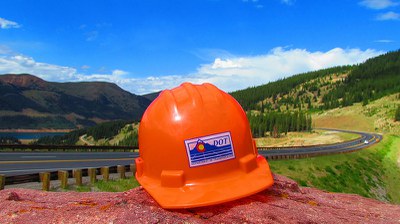Coping With Construction
What We Do
The Colorado Department of Transportation (CDOT) plans, designs, builds, and maintains Colorado’s state highway system. Unfortunately, 52 percent of the state highway infrastructure is in poor condition, and more than 100 of Colorado's bridges are in disrepair. With a degrading highway system, CDOT's work to make improvements will be ongoing in the next few years. While it is necessary to maintain and construct our roadways, interchanges, and bridges to keep the public safe and help Colorado’s economy grow, we want to work with local businesses to help minimize construction impacts. Here are a few tips for how to work with CDOT and your customers during construction:
- Get Involved Early
- Plan for When Construction Starts
- Stay Open with Minimal Impact
- Post Construction
- Learn About CDOT Resources
Benefits of Construction Projects
Transportation and mobility are key to our quality of life and economic growth. Besides the obvious benefits of new construction, like the actual bridge, roadway, etc., there are other benefits to nearby businesses after projects, which can include:
- Increased exposure and visibility in areas that will have increased traffic flows.
- Modernized American Disabilities Act (ADA) standards, including curbs and sidewalks, which also benefit pedestrians and cyclists.
- Increased access to multimodal forms of transportation (e.g. bus services or bike paths).
- Enhanced safety features (e.g. new sidewalks, new signage).
- Decreased congestion. According to the Journal of Urban Economics, a 10% decrease in congestion generates a 1% increase in regional economic productivity.
- Pathway to future economic development.
- Safer, smoother roadway near your business that often requires less future disruptive maintenance and creates less wear and tear on vehicles. Poor road conditions can cause as much as $300 in damage to vehicles annually.
Frequently Asked Questions
- How will I know if a construction project is being planned in my area?
- CDOT starts planning projects well in advance of breaking ground. Since we are in charge of roughly 23,000+ lane miles of highway, many projects are in different phases of the planning process. Depending on funding, project impacts, and other factors, some projects can become higher priority than others. Use the list of resources on the other side of this card to learn about projects in a variety of stages of planning. This way, you can know what projects are slated to begin soon, and others that are years away from becoming reality.
- How long does construction typically last?
- The length of construction during projects varies depending on what kind of project is underway, when the work will be completed, what resources are available during construction, and many more factors. Colorado also has a short construction season due to our winters, which means that construction must take place as weather permits. Project lengths can vary from a few weeks to several years, so just ask us about a specific project and we’ll give you our best estimated date of completion.
- What activities and changes can I expect in my area during construction?
- During construction, you will likely see equipment moving in and out of the work zone, which at times may cause lane closures. You will see crew members working on the project, sometimes during early mornings or nights, who will be easy to identify by their hard hats and vests. There will likely be dust in the area, as well as the potential for loud noises from machinery.
- Will customers still have access to my business during construction?
- Yes! Sometimes temporary signage will be installed directing motorists to businesses impacted by construction. Other times, businesses can work with CDOT, the contractor, or local government to post access signage. As previously mentioned, it would be beneficial to educate customers ahead of time about how they can access your business during construction.
- Will I be compensated for any lost revenues?
- Unfortunately, CDOT cannot compensate businesses for projected lost revenues.
- Can I communicate questions and concerns during a project? If so, how?
- Absolutely! There are several ways to contact us, many of which have already been mentioned. Depending on the project, there may even be a public information hotline/email address you can contact, which will be listed either on the project website (if there is one), on the project signs, or on materials handed out about the project.
